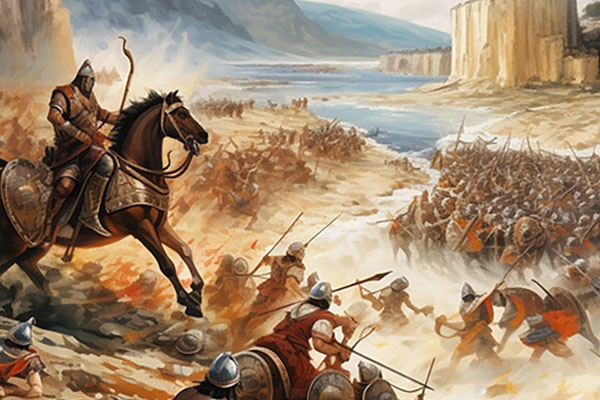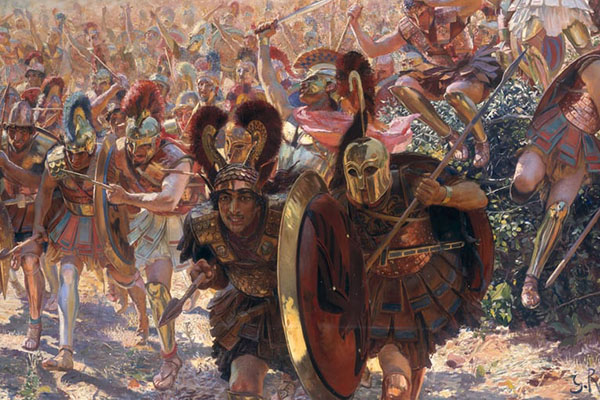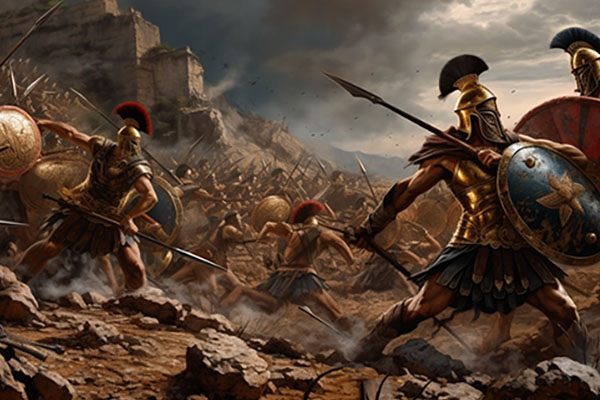The Second Persian Invasion of Greece, also known as the Greco-Persian Wars (480–479 BC), was a series of conflicts between the Persian Empire, led by King Xerxes I, and the Greek city-states. Following the defeat of his father, Darius I, at the Battle of Marathon, Xerxes launched a massive invasion force to subdue Greece and exact revenge.
Xerxes' invasion force was one of the largest in ancient history, consisting of hundreds of thousands of soldiers and sailors from across the Persian Empire. The campaign aimed to conquer and annex the Greek city-states, which had supported the Ionian Revolt against Persian rule.
The invasion began in 480 BC with the crossing of the Hellespont (modern-day Dardanelles) into Europe. Xerxes' forces marched southward, encountering little resistance as they advanced through Thrace and Macedonia. The Greek city-states, aware of the impending threat, began to mobilize their defenses and form alliances to oppose the Persian advance.
The decisive battles of the Second Persian Invasion included the famous stand at Thermopylae, where a small Greek force, led by King Leonidas of Sparta, held off the Persian army for several days before being defeated, as well as the naval Battle of Salamis, where the Greek fleet, under the command of Themistocles, inflicted a significant blow to the Persian navy.
Despite initial Persian successes, the invasion ultimately ended in failure for Xerxes and his forces. The Greeks, inspired by their victories at Thermopylae and Salamis, rallied to defend their homeland, culminating in the decisive Greek victory at the Battle of Plataea in 479 BC.
| Start Date | 480 BC |
|---|---|
| End Date | 479 BC |

Did you
know?
Did you know? The Second Persian Invasion of Greece was immortalized in the 2006 film "300," based on the graphic novel by Frank Miller, which depicts the Battle of Thermopylae.
Wars
View allALLFurther Reading
Art &
Architecture
Ancient Greek art and architecture, with its harmonious proportions and timeless elegance, continue to inspire awe and admiration millennia later.
Discover
Greek Mythology & Mythical Characters
Greek mythology, a rich tapestry of gods, heroes, and mythical creatures, captivates the imagination with its tales of love, betrayal, and epic adventures that delve into the depths of the human psyche.
Discover
Ancient Greek History
Ancient Greek history, marked by remarkable achievements in democracy, philosophy, and warfare, shaped the foundation of Western civilization, leaving an indelible legacy of innovation and cultural influence that continues to resonate to this day.
Discover
Ancient Greek Olympics
The ancient Greek Olympics, held in Olympia every four years, celebrated athleticism, unity, and cultural pride, serving as a testament to the enduring spirit of competition and excellence that transcends time and borders.
Discover
Ancient Greek Wars
Ancient Greek wars, such as the Persian Wars and the Peloponnesian War, were pivotal conflicts that shaped the course of history, highlighting the struggle for power, independence, and the clash of civilizations in the ancient Mediterranean world.
Discover
Ancient Greek Culture and Society
Ancient Greek culture and society, characterized by its emphasis on art, philosophy, and civic engagement, fostered a vibrant intellectual and social landscape where innovation flourished, democracy thrived, and the pursuit of knowledge and excellence was celebrated as fundamental values of civilized life.
Discover


